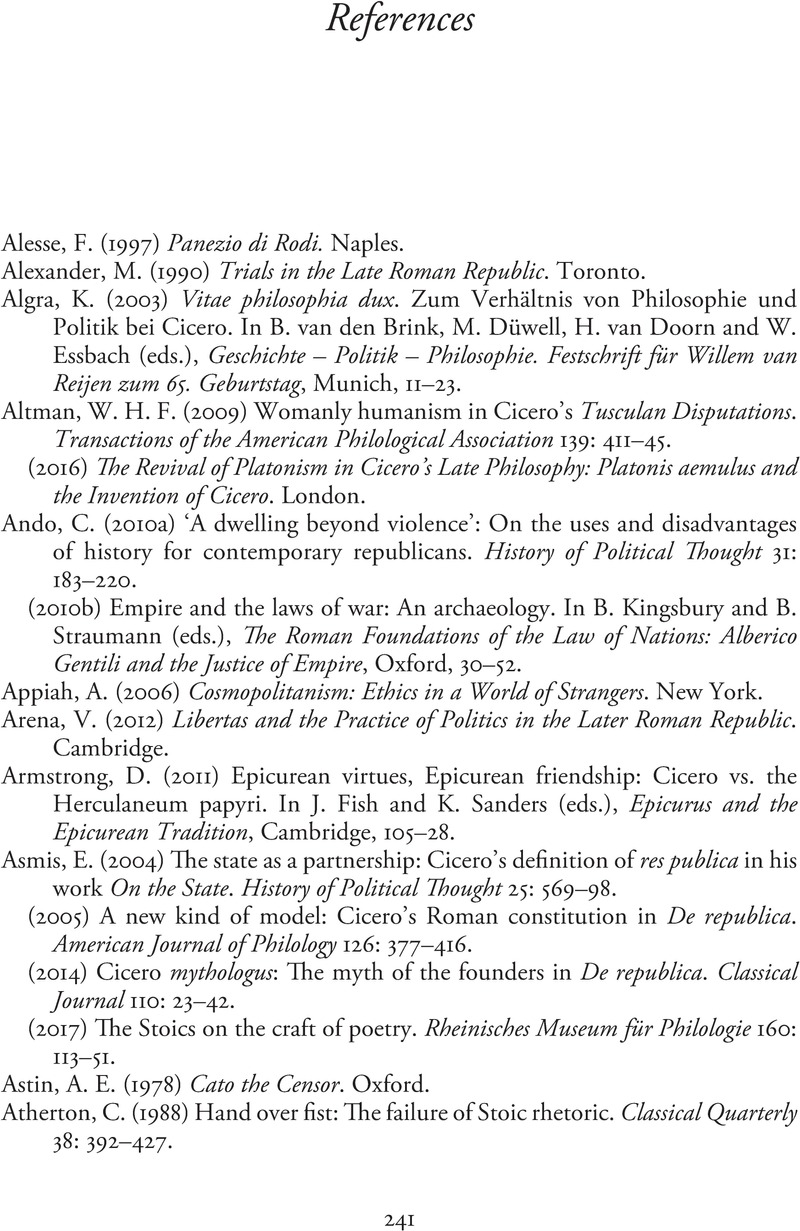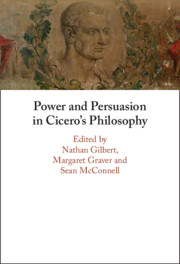Book contents
- Power and Persuasion in Cicero’s Philosophy
- Power and Persuasion in Cicero’s Philosophy
- Copyright page
- Contents
- Contributors
- Note on Texts and Translations
- Introduction
- Part I Techniques and Tactics of Ciceronian Philosophy
- Part II Political Philosophy and Ethics
- References
- Index Locorum
- General Index
- References
References
Published online by Cambridge University Press: 15 January 2023
- Power and Persuasion in Cicero’s Philosophy
- Power and Persuasion in Cicero’s Philosophy
- Copyright page
- Contents
- Contributors
- Note on Texts and Translations
- Introduction
- Part I Techniques and Tactics of Ciceronian Philosophy
- Part II Political Philosophy and Ethics
- References
- Index Locorum
- General Index
- References
Summary

- Type
- Chapter
- Information
- Power and Persuasion in Cicero's Philosophy , pp. 241 - 258Publisher: Cambridge University PressPrint publication year: 2023



